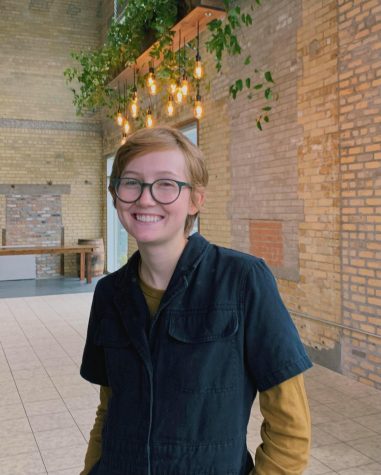Community members prepare more inclusive college history

February 13, 2020
On Tuesday, Feb. 4, a group of students, staff, faculty and alumni convened in the Barbara B. Davis SPACE to begin a ten-week process during which they will interrogate the college’s institutional history and endeavor to write a more accurate, inclusive one.
The project is a collaboration between four Macalester institutions: the DeWitt Wallace Library, the Kofi Annan Institute for Global Citizenship, the Jan Series Center for Scholarship and Teaching, the Center for Religious and Spiritual Life and the Department of Multicultural Life.
To guide their reading, the 46-member group will rely heavily on Nature and Revelation — a controversial history of the college written by University of Minnesota religious studies professor Jeanne Kilde published in 2010.
“Nature and Revelation… is the one real history of Macalester that has been produced,” steering committee member Jennings Mergenthal ’21 said. “[We’re] critically looking at it and what it does and doesn’t do, narratives it does and doesn’t contain, and how this can be supplemented with other sources to more properly frame the history of Macalester.”
The group’s goal is to produce an outline for more inclusive and nuanced work and identify gaps in the history with an emphasis on slavery, decolonization, discrimination and resistance.
“I think we’re readily looking at the good, the bad and the ugly,” Library Director and chair of the steering committee Terri Fishel said. “Not just portraying everyone as everyone having the best intentions, but recognizing that some individuals may have a darkside. We want to recognize that but also increase the visibility of people who haven’t received as much notice.
“[Nature and Revelation] was written in 2010, so there are some individuals, like Kofi Annan, that may not be as represented in this,” Fishel continued. “Also people like Esther Suzuki, Catherine Lealtad. There are other individuals, key women, people who might not have been prominently featured.”
The reading group was kickstarted by a small amount of funding from the Mansergh-Stuessy Grant for College Innovation, a grant that aims to encourage creative ideas that enhance college programs around the greater St. Paul area.
Fishel used most of the money the project received to purchase copies of the book.
“Our grant doesn’t have enough money to provide another history in the same way, but there are a lot of students interested in exposing the history we uncover,” Fishel said.
Due to the limited funding, the reading group will not be able to produce or publish a comprehensive history of the college in the foreseeable future. Instead, participants see it as a structured environment to begin the lengthy process of writing an updated history.
“My reading group is the only one that is majority students,” Mergenthal said. “I think it will be interesting to incorporate, within the reading of the book, discussions on things like institutional memory, since we don’t have any. ”
For Director of the Jan Serie Center for Scholarship and Teaching and steering committee member Joan Ostrove, the reading group is a place to ask difficult questions about Macalester’s past.
“That more critical part is important to me,” Ostrove said. “Not just to tell a story, but to ask hard questions about that story.”
That complex understanding of the college’s history is what attracted Emma Harrison ’21 to the project.
“I personally have been interested in Macalester’s history for a while,” Harrison said. “I had actually written a proposal to spend the semester doing an independent study on Macalester history. I’m interested in institutional histories and the history of Mac and the things that we don’t know, as well as the culture of ahistorical thinking.”
Nonetheless, Mergenthal believes that the student population as a whole is apathetic toward the college’s history.
“They want to get in and get out and that’s why there’s no institutional memory,” Mergenthal said. “There’s not a critical mass invested in maintaining and observing the history because of overall complacency.”
Harrison agreed — though she is excited by the opportunity to contribute to a more comprehensive iteration of Macalester’s history.
“I have not been in a lot of spaces on campus that are students, faculty, staff and alumni collaboratively working on projects together,” Harrison said.
“This has more than met my expectations and hopes and I could not be happier,” Fishel said. “I’m hoping the people that participate will find this to be a great experience. The idea of staff, students, faculty talking about a single reading has always been a dream of mine.”












